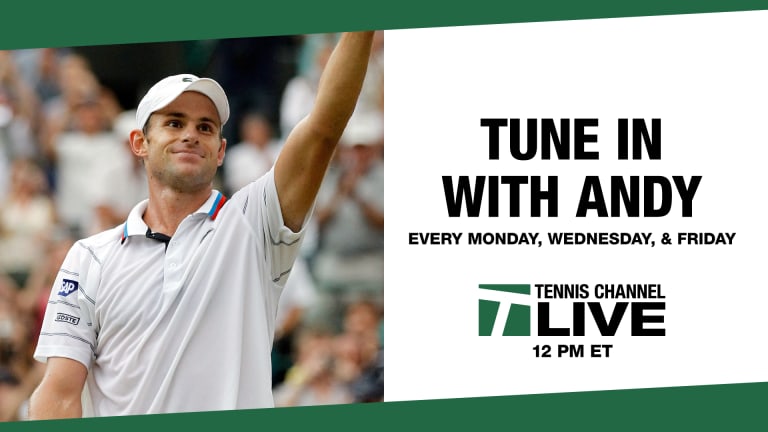It’s been a little over a month since Indian Wells led the way among the sport and entertainment industry by not hosting its event in wake of the coronavirus pandemic. Just over a week ago, the All England Lawn Tennis Club (AELTC) made the decision to cancel Wimbledon for 2020, with zero intention to reschedule later in the season.
More than 900 tournaments have already been postponed by the International Tennis Federation (ITF), which to no surprise, has resulted in the organization taking significant measures. On Thursday, the ITF announced around half of its staff had been furloughed and reduced salaries for its remaining employees as part of a plan to protect its long-term health.
The ATP and WTA tours won’t resume until July 13 at the earliest, but given the scope of COVID-19, it’s probable a resumption will be pushed back again, possibly until 2021. ATP CEO Andrea Gaudenzi is considering "50 variations" for a modified 2020 calendar, yet tennis was notably absent from the picture when U.S. President Donald Trump held a conference call last week with several heads of sports leagues and events.
That revelation understandably reopened the conversation about how fragmented tennis is without centralized leadership. One rising topic of concern—as in every other industry that is on pause—is how the sport can take care of its stakeholders, from competitors and coaches to umpires and event staff. Players who are tour veterans and regular fixtures on the Grand Slam scene can sustain for an extended period, but those who compete at levels offering development in favor of financial reward are the ones who should be prioritized, according to Jim Courier and Andy Roddick.
“Which level of prize money income do players not have enough to pay their rent? To pay their electronic bill?,” Courier asked. “I think we have to start looking around [number] 200 [on the] prize money list from 2019.”
“It’s less of a main ATP tour issue. The people that are on tour and have been for an extended period of time are probably OK,” added Roddick. “It’s the up and coming guys that are paycheck to paycheck, looking to make it to the next week.”
The former world No. 1 and 2003 US Open champion, who wants this issue to be directed toward the most financially successful entities, posed a thought-provoking question to his fellow International Tennis Hall of Fame inductee.
“If only there was a Slam somewhere out there that needed weeks that have been guaranteed to the ATP tour later in the year. Maybe there would be a financial trade-off. What do you think Jim?”
Courier explained that tennis is like a micro version of the macro problem the world is facing every day. In his eyes, if conditions allow for tennis to return later this year, the four-time major champion believes all the pieces of the tennis puzzle must come together—prioritizing the sum of all parts over individual gain—to ensure the game does not suffer enduring consequences.
“This is not a year to make profits. This is a year for tennis to help each other and survive,” declared Courier. “All the tournaments that do get to play at the end of the year, I think they need to be supplementing other tournaments.
“Prize money has been moving at the tours’ lead, they’ve been moving more to the earlier rounds and the qualifying. They have a five-year plan on the ATP to do that. This crisis is an opportunity to fast track that and help the lower-ranked players.”
On Friday, the French Tennis Federation (FFT) announced a €35 million recovery plan, with details, including allocation of funds, to be finalized by its executive committee on May 15. It's primary mission is to support a range of national stakeholders facing economic hardship, including professional players, local clubs and tournament organizers putting on international tournaments.
